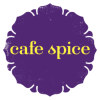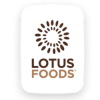BOCA RATON, Florida — As more food manufacturers enter the increasingly competitive snacking space, the head of Mondelez International said his company has an inherent advantage over its competitors because many of its brands like Oreo and Cadbury have been around for more than a century, deeply entrenching themselves into the regular consumption habits of shoppers.
Dirk Van de Put, CEO of Mondelez, told Food Dive that companies who own a suite of brands tailored to snacking can easily tap into their portfolio to supercharge that growth compared to other CPG players who are moving into the rapidly growing segment "because their other product groups are not doing so well."
"It's not that easy to walk in and say, 'Here's the new snacking brand that's going to beat an Oreo.' That's going to be very tough," Van de Put said. "These brands, ... people have eaten them for their whole lives — that creates a special link. And so it is difficult to sort of displace that."

As the spending power of millennials and Gen Zers increases and they have kids, brands popular with parents now are more likely to be passed down to future generations, he said, provided that companies like Mondelez can successfully keep the products fresh and top-of-mind with consumers.
"That doesn't happen by accident. You need to really work it. But there is a goodwill, I would say, from the consumer already there to be very open to the brand," Van de Put said. "I think that's the strength of our brand portfolio."
Snacking brands have been attractive M&A targets among established CPG players looking to take advantage of growth in the space.
Campbell Soup doled out nearly $5 billion in 2017 for Snyder's-Lance, the maker of Cape Cod potato chips and Pop Secret popcorn. Kellogg snapped up RXBAR for $600 million; Conagra Brands added to the fold ready-to-eat popcorn brand Angie's Boomchickapop and Thanasi Food, the manufacturer of Duke's meat snacks brand and Bigs sunflower seeds; and Hershey purchased Amplify Snack Brands, parent company of SkinnyPop, for $1.6 billion, before acquiring Pirate Brands and protein bar maker One Brands.
Mondelez has focused on expanding the global reach of its nine biggest brands that include Ritz and Chips Ahoy, while also giving additional attention to many of its more than 60 local brands that had been neglected. The strategy appears to be paying off. Mondelez said last month that revenue in 2019 rose 4.1% to $25.9 billion from the prior year, topping analysts’ estimates. The company is gaining or holding market share in 75% of categories it operates in, and it reiterated this week that it expects organic sales in 2020 to increase at least 3%.
"What I think [Van de Put] has done to really ensure that they are benefiting from the tailwinds in terms of the secular trends toward snacking is making sure the product innovation resonates with consumers," Erin Lash, a director of consumer equity research at Morningstar, told Food Dive.
Since taking the helm of Mondelez in November 2017, she said Van de Put has improved innovation in the company's pipeline, pushed decision making on its local brands to executives that oversee them on the ground and increased testing on a smaller scale for new products before deciding whether to make changes or whether to roll the product out more widely.
This has allowed the company "to more effectively tap into" its presence in snacking, Lash said. "They've done a ton to improve the business, and they are driving more profitable growth."
In recent years, Mondelez has made its own deals in snacking by purchasing brands such as premium cookie Tate's Bake Shop maker for about $500 million in 2018, and acquiring a majority stake in Perfect Snacks, the manufacturer of organic, non-GMO, nut butter-based protein bars and bites, last year. Both brands are growing at "strong double digits," Van de Put noted.
"It's not that easy to walk in and say, 'Here's the new snacking brand that's going to beat an Oreo.' That's going to be very tough. These brands, ... people have eaten them for their whole lives — that creates a special link. And so it is difficult to sort of displace that."

Dirk Van de Put
CEO, Mondelez International
He told a crowd at the annual Consumer Analyst Group of New York conference in Florida this week that the company remains on the lookout for deals that give it a bigger reach in snacking areas, such as premium, fresh, better-for-you or ones that expand Mondelez's presence in a certain region with a specific product, such as biscuits in India.
During the interview with Food Dive on the sidelines of the conference, Van de Put said the company is open to smaller bolt-on deals, as well as larger acquisitions. But he said big M&A could be harder to achieve because there are only a few players available that pique Mondelez's interest, and the ones that do either aren't for sale, carry too high a price tag or the acquisition target also contains assets that may not be attractive to the company. The Illinois-based food giant also must address any anti-trust issues that arise from global regulators.
"That's what makes the opportunity that we will do something big much less likely," he said. "The bolt-ons allow us to reinforce in areas. It's almost like a very targeted approach."
Focus on moderation
As consumer fondness for snacking and eating-on-the-go increases, companies such as Mondelez and confectioner Hershey appear ideally positioned with their snack-based portfolios. Even as the public looks for better-for-you options that offer nutritional or functional benefits, indulgence remains top-of-mind for many people.
According to a study Mondelez conducted with the Harris Poll last year, snacking is preferred to eating meals for 59% of adults worldwide. For millennials, that figure jumps to 70%. The results found catering to indulgence might actually be an asset rather than a problem; 83% of respondents indicated an otherwise balanced diet can contain some indulgence. Four in five adults appreciated having both healthy and indulgent snacks readily available.

Mondelez is innovating in its core product lines to give consumers a compelling reason to still want the product, but do so in moderation, such as through thinner Oreos, smaller package sizes or less sugar. Mondelez last summer introduced in Britain a version of its popular Cadbury Dairy Milk with 30% less sugar. Van de Put said while there is a market for a lower-sugar product like Cadbury, for example, most people would rather just eat less of a regular one.
This observation underscores the company's pledge to put 20% of its snacks in portion-controlled packs by 2025, from more than 15% today. The promise also includes packaging that will encourage people to "snack mindfully."
While on the surface it may seem the company is encouraging shoppers to eat less of its cookies, chocolates, biscuits and bars, Van de Put said this message is ultimately better for its brands because it helps foster a closer relationship with consumers — a connection that's particularly important among parents who could pass on their enjoyment of Mondelez products to their children.
"The better the consumer feels about snacking on our product, and if they understand they can do it with moderation, in the end that is going to [impact the] long-term health of our of our business. We don't want people to mindlessly snack on our product and then feel guilty about it the next day, [we're] not well served by that," he said. "We want to create a positive feeling about our brands. And we think by being a responsible brand, and helping consumers thinking through how they eat is the best way to do that."






















